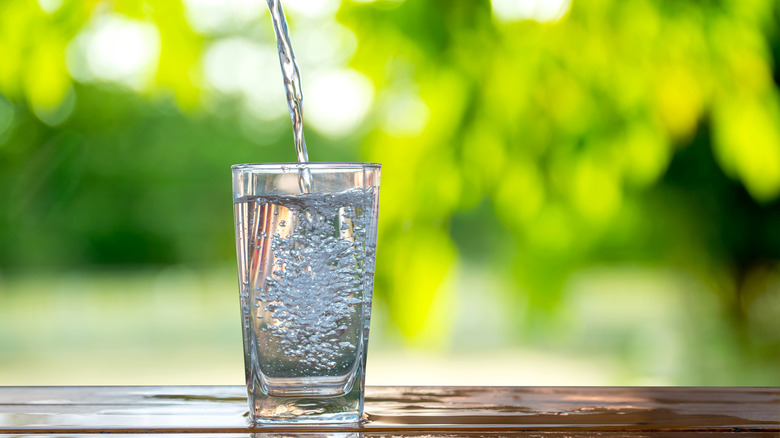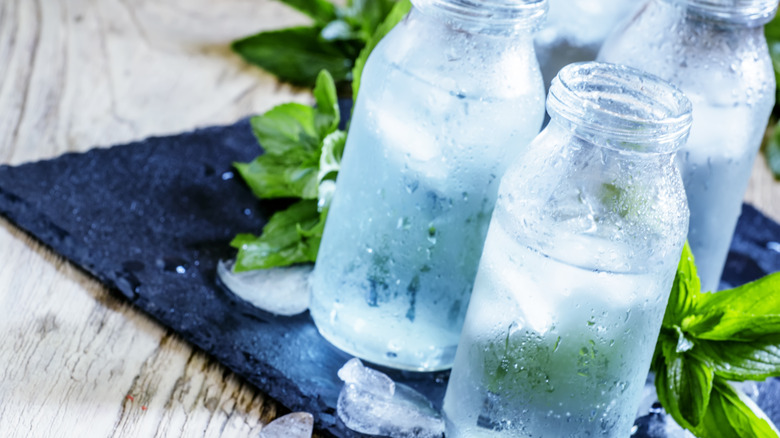Is There Really A Difference Between Hydrating With Warm Water Vs. Cold Water?
There is a sizable chunk of Americans who don't drink enough water. While drinking about eight glasses of water everyday is recommended, recent data suggests up to 47% of Americans fall way short of that goal (via WTAE News). While you can give or take about two glasses from that suggestion, many people are still consistently dehydrated.
Several things happen to your body when you're dehydrated, but darker-colored urine is typically the first sign. You may also experience fatigue, dizziness, constipation, and a loss of appetite for everything except sugar. More than just a thirst quencher, water keeps all of your bodily fluids in check and supports kidney function by removing toxins from the body. It also lubricates your joints and makes it easier for you to digest minerals and nutrients vital for your health.
When it comes to drinking water, any temperature is fine as long as you're consuming it, right? Well, it turns out that both warm and cold water have their own pros and cons. In fact, the temperature of the water you drink should depend on whatever health concern you're facing.
Ancient medicine frowns upon cold water
During sweltering summer days, people tend to gravitate toward cold water to cool themselves down. The same should also be done during and after a workout to avoid overheating and keep your body at its proper temperature. Cold water can also help you burn a few more calories than warm and room-temperature water by boosting your metabolism ever so slightly. If you suffer from nausea or motion sickness, sipping on cold water or chewing on a bit of crushed ice can help soothe your upset stomach.
On the other hand, if you have achalasia, which makes it difficult to swallow, you'll want to avoid cold water, and for migraine sufferers, it can potentially increase your risk for more headaches. According to Traditional Chinese Medicine, consuming cold food and drinks is detrimental to the spleen and stomach and can lead to digestive issues. Ayurvedic medicine also shuns cold water, suggesting it is bad for your gut and results in energy loss since your body must work to match the water with your internal temperature.
Warm water helps fight pain and sickness
A strong supporter of the benefits of consuming warm water, Traditional Chinese Medicine believes it increases blood flow and circulation, thus detoxifying your body and decreasing pain-causing muscle contractions. As a result, it can aid in soothing sore throats and even menstrual cramps.
Western medicine also supports the practice, claiming warm water helps with digestion and constipation relief and can even boost your mood and central nervous system function. In general, warm drinks help ward off colds, which is why we drink hot teas and broth when feeling under the weather. Warm water helps relieve nasal blockage by thinning out the mucus that causes congestion and coughing when you're sick.
Additionally, hot water is said to detoxify the body through sweating, which, in turn, helps to cool you down. Its ability to increase circulation can potentially ease pain by causing blood to flow to areas of the body where it's needed most.


